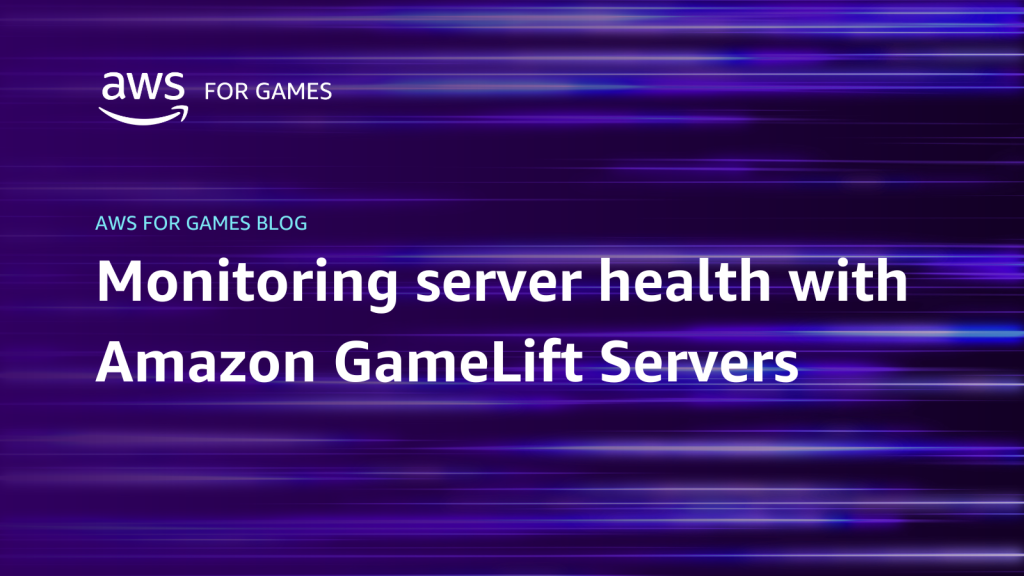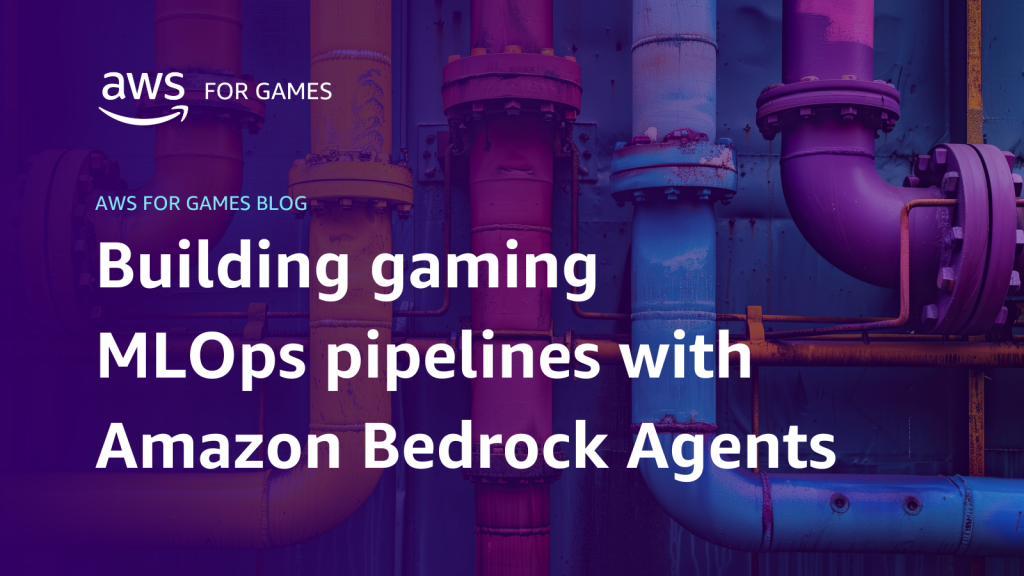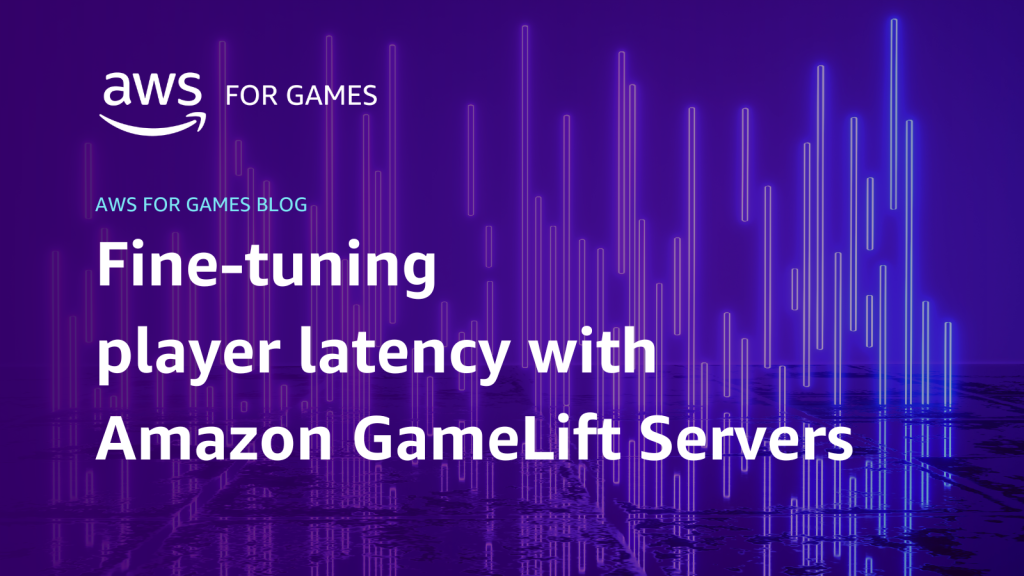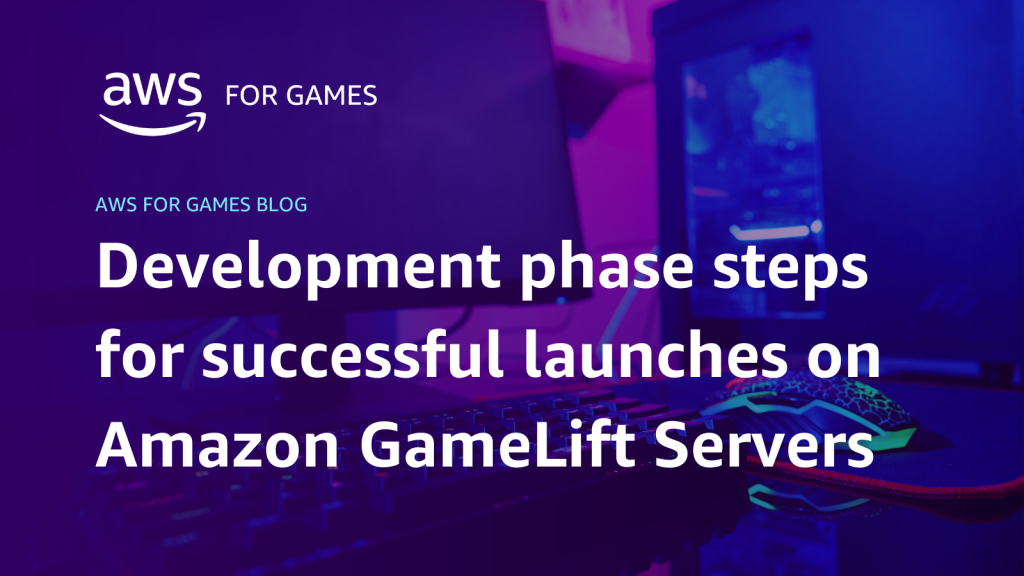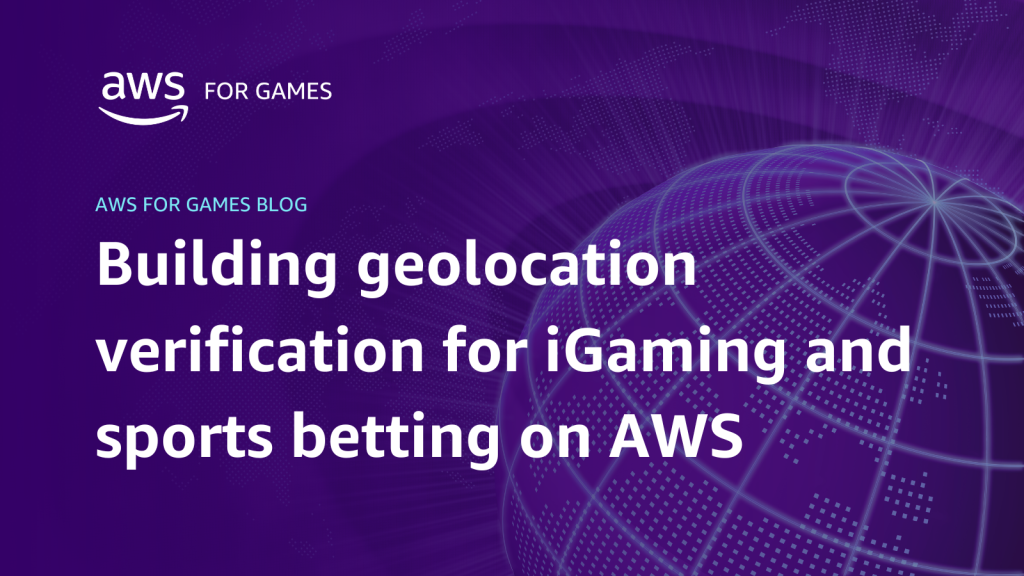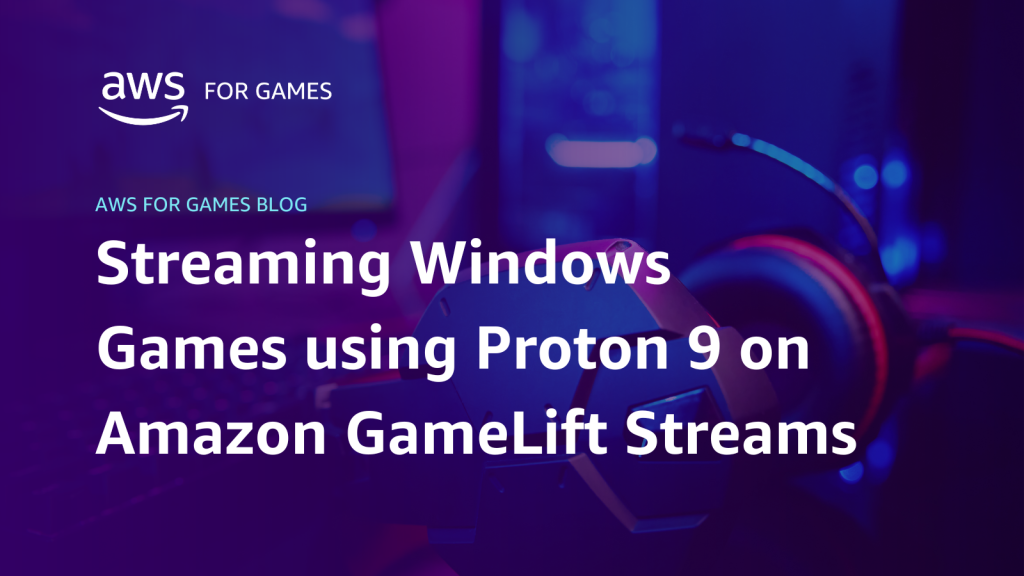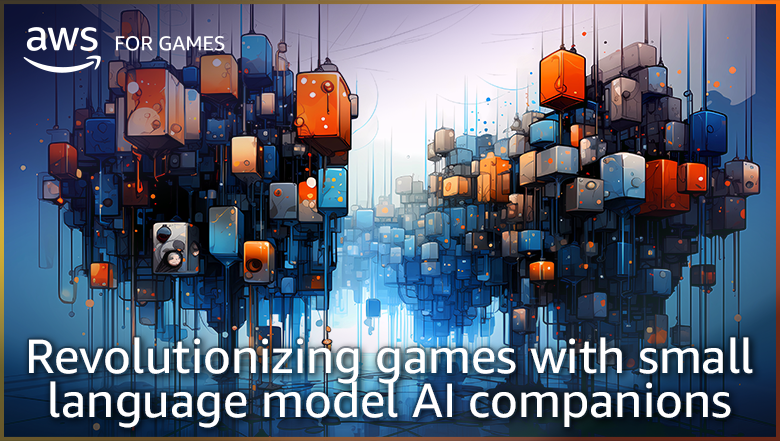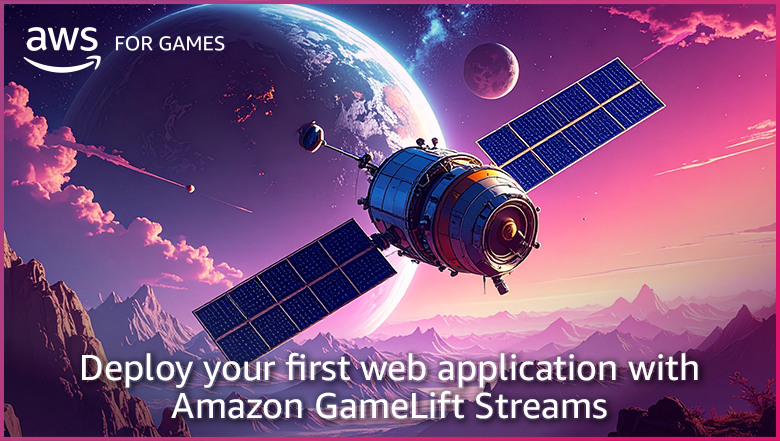AWS for Games Blog
Category: Management Tools
Monitoring server health with Amazon GameLift Servers
Running a successful multiplayer game means constantly balancing performance, scale, and player experience. As your player base grows, new challenges emerge. The causes could be any one of a variety of different problems. Perhaps it’s something in your server code. There could be a memory leak, inefficient logic, or a bug that only surfaces under […]
Building gaming MLOps pipelines with Amazon Bedrock Agents
In today’s competitive gaming landscape, machine learning (ML) has become essential for delivering personalized experiences, optimizing game mechanics, and driving business outcomes. However, traditional approaches to building and deploying ML systems often require extensive DevOps expertise, manual pipeline configuration, and complex infrastructure management that can slow down innovation and time-to-market. Game studios need agile, automated […]
Fine-tuning player latency with Amazon GameLift Servers
If you’ve launched an online multi-player game, you’re aware that few things are as frustrating (and perhaps inevitable) as forum complaints about latency. It can often be challenging to separate issues which you can influence (proximity of servers or code optimization) from problems outside of your control (under-sized hardware or network issues on the player […]
Development phase steps for successful launches on Amazon GameLift Servers
You’re developing a multiplayer game, but aren’t certain about how to efficiently host, scale, and monitor the game server fleet globally. You’re also thinking about how to place sessions efficiently around the world for the best player experience. Building the required infrastructure from scratch can be overwhelming. We recommend Amazon GameLift Servers, a fully managed […]
Building geolocation verification for iGaming and sports betting on AWS
Geolocation verification in sports betting and iGaming serves two primary purposes: compliance and fraud prevention. Online sports betting and iGaming operators may need to ensure that only players from certain regions of the world are able to view content due to in-market licensing restrictions. Or gaming regulations may require that access is restricted to persons […]
Streaming Windows Games using Proton 9 on Amazon GameLift Streams
Players expect instant, click-to-play experiences across any device, and Amazon GameLift Streams helps customers build these experiences for games and streaming application use cases. While playing video games traditionally relies on the Windows operating system, Amazon GameLift Streams can run Windows-based games, or applications, on a Windows or Proton runtime. Proton is a compatibility layer […]
Revolutionizing games with small language model AI companions
In-game generative AI is enabling new player experiences. However, implementing AI-driven features in games can be challenging due to latency and device computing power. We’ll explore one innovative solution: leveraging players’ mobile devices to run small language models (SLM) as companion applications. Instead of integrating SLM features directly into resource-constrained game environments, consider developing a […]
Deploy your first web application with Amazon GameLift Streams
Imagine running graphically intense 3D applications instantly in your web browser, with no downloads or powerful hardware required. That’s the magic of pixel streaming, a game-changing technology that’s revolutionizing how businesses deliver immersive digital experiences. While traditionally complex and costly to implement, Amazon GameLift Streams is making this powerful capability accessible to companies of all […]
Amazon GameLift Servers Streamlines Integration with Unreal Engine 5
Amazon GameLift Server solutions are now easier to integrate than ever. We’ve updated the Amazon GameLift Servers Plugin for Unreal Engine, open-sourced the SDK, and added ARM support—all while expanding Amazon EC2 compatibility to generation 5-8 instances. These improvements respond directly to developer needs, whether you’re seeking streamlined server functionality or comprehensive in-editor workflows. Amazon […]
Game developer’s guide to Amazon Aurora Serverless v2
Game developers face unique database challenges when building and scaling their games. When a game suddenly gains traction, whether through social media buzz, streamer attention, or positive reviews, the database infrastructure needs to seamlessly handle millions of concurrent players. Simultaneously, during off-peak hours or if a game doesn’t achieve expected popularity, maintaining expensive infrastructure based […]
